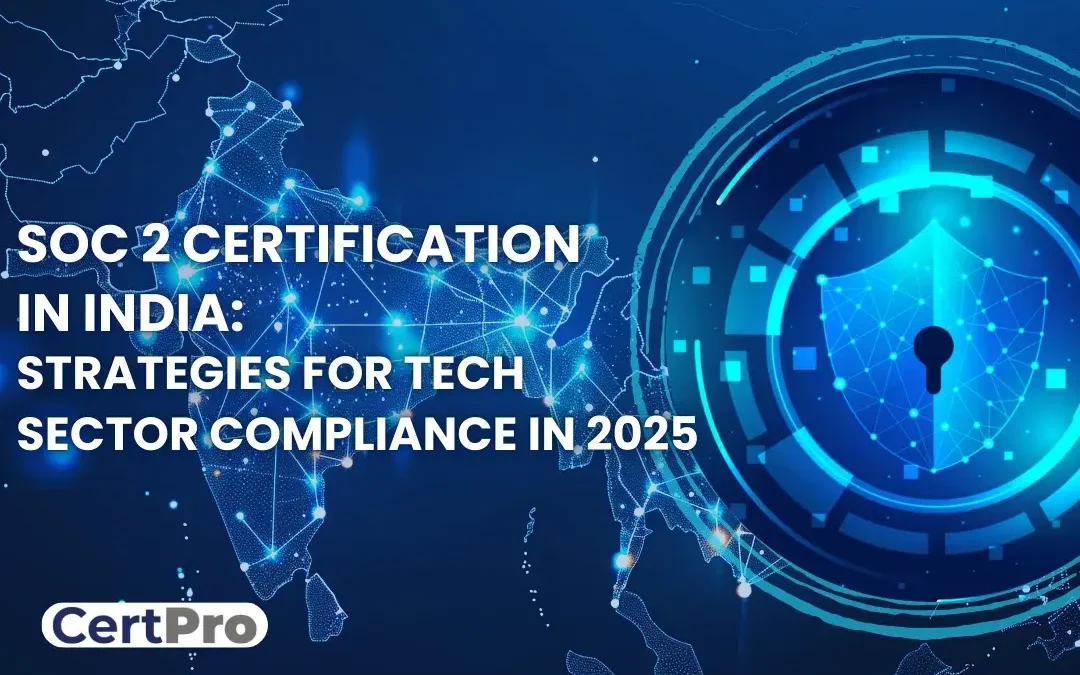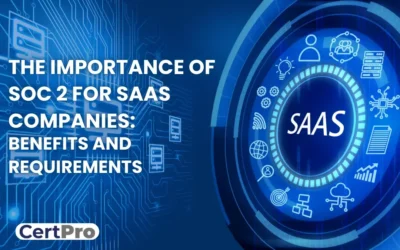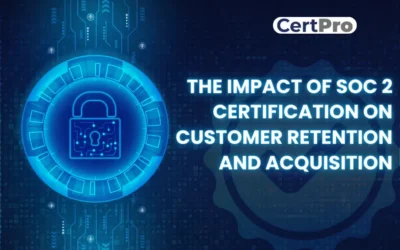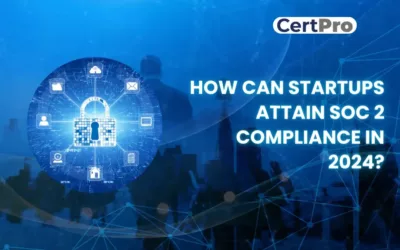The AICPA developed SOC 2 certification in India as a collection of guidelines to assist IT businesses in protecting client data. With the rapid growth of India’s digital sector, safeguarding personal data is more crucial than ever. Businesses must demonstrate their concern for protecting user information as more individuals utilize online services and save data in the cloud. With several new businesses in industries like online commerce, healthcare, and finance, India’s IT sector is flourishing. However, this expansion also entails dangers; therefore, adhering to stringent security regulations is essential to maintaining client confidence and abiding by the law.
Although SOC 2 compliance is not mandatory, businesses that handle sensitive data should make SOC 2 compliance a priority. Adopting SOC 2 guidelines proactively is crucial for reducing risks associated with cyberattacks and data breaches. This not only protects consumer data but also strengthens a company’s competitive advantage in the fast-changing digital landscape. By pursuing SOC 2 certification in India, businesses can position themselves for success as the country advances towards a more secure technological environment.
Importance of SOC 2 Compliance for Indian Tech Companies
SOC 2 certification contributes to the security of sensitive data in India. Additionally, it enhances a business’s image and demonstrates that it complies with significant industry standards. Here’s why this matters:
- Building Trust with Clients Around the World: SOC 2 certification is very important for businesses, especially when working with clients in the US. It shows that a company cares about keeping information safe, which helps build trust. For Indian tech companies wanting to compete globally, getting this certification is a big step. It helps them be seen as reliable and safe partners.
- Strong Data Security: In a smart way for companies to protect themselves and their clients. It means putting strong security measures in place to reduce the risk of data breaches and cyberattacks. By regularly checking their security through SOC 2 audits, companies can keep getting better at staying safe. This makes their systems stronger and helps keep threats away.
- Ensuring Regulatory Compliance: For Indian tech companies that work with clients from around the world, meeting international standards is really important. SOC 2 certification in India helps with this. It shows that these companies follow global rules and meet the legal requirements of different countries. As data protection laws become stricter globally, achieving compliance helps companies stay prepared and adapt quickly to these new regulations.
- Achieving Operational Excellence: Achieving compliance allows organizations to enhance operations and identify potential issues in their processes. This enhances the strength and efficiency of their systems. Additionally, the compliance process fosters a culture of safety, as organizations must regularly train employees on data security practices.
- Market Growth and Competition: Adhering to important global standards helps Indian tech companies access new markets that require strong data security. This makes them more appealing to different types of customers. With SOC 2 certification in India, these companies can attract clients from important fields like finance and healthcare, where keeping data safe is very important.
- Sustainable Growth: In an era when data breaches can severely affect a company’s finances and reputation, achieving this certification is essential for safeguarding the business’s future. Obtaining SOC 2 certification in India is a crucial first step toward adhering to additional security regulations, further strengthening and securing the organization.
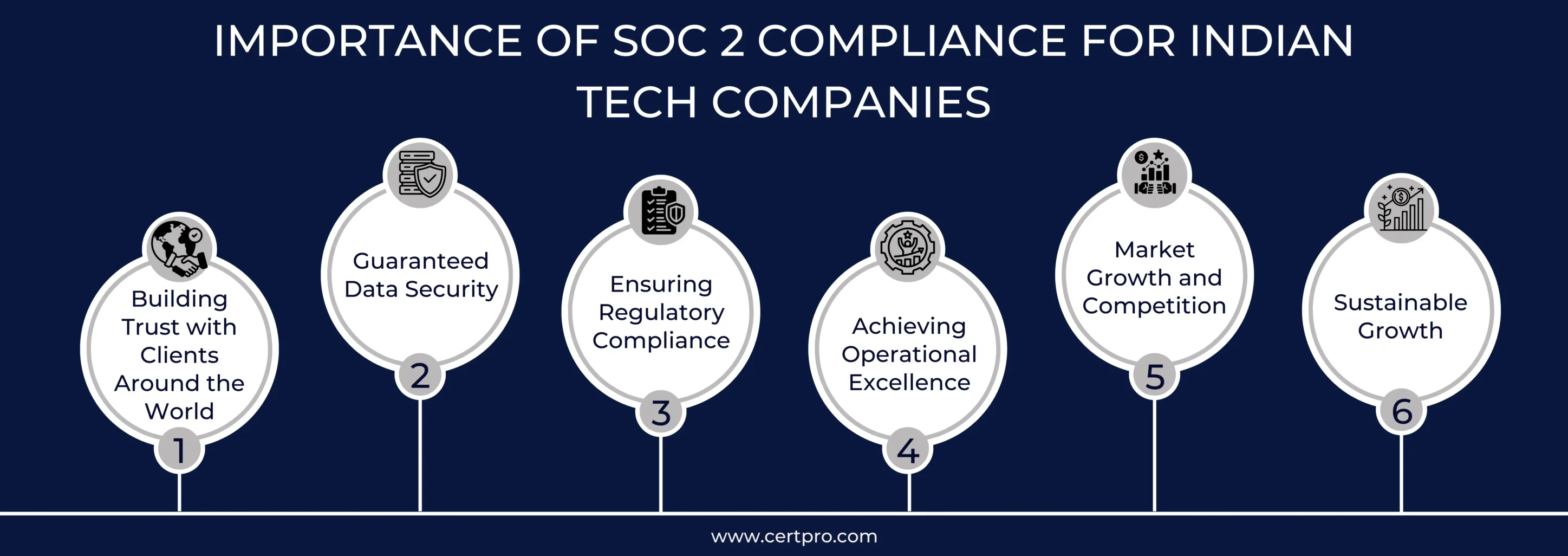
STRATEGIES TO OVERCOME SOC 2 COMPLIANCE HURDLES
1. Understanding SOC 2 Compliance: The biggest challenge with compliance is knowing which framework to follow and which security controls to implement. SOC 2 and SOC 3 both look at controls based on the Trust Services Criteria (TSC), but there are other types, like SOC for cybersecurity or SOC for supply chain.
When deciding between SOC 1 or SOC 2, it’s important to choose the right type of SOC report. Understanding what is needed makes it easier to implement the controls and prepare for audits.
The American Institute of Certified Public Accountants (AICPA) oversees three main types of SOC reports:
SOC 1: Focuses on controls for financial reporting, mainly for financial service providers. It has Type 1 and Type 2 reports.
SOC 2: Looks at security, availability, and privacy for a wider range of organizations. It also comes in Type 1 and Type 2.
SOC 3: Covers the same areas as SOC 2 but is easier for the general public to understand and does not have a type designation.
2. Gaps in Control Deployment: A major challenge in achieving certification is setting up the right security controls. Organizations need to follow the Trust Services Criteria (TSC) to meet the requirements. There are basic rules that apply to all SOC 2 audits, focusing mainly on security but also covering other important areas.
In addition to these basic rules, there are extra rules based on what clients need. If a company isn’t sure what to do, it might be best to set up all the controls. However, if clients only want the basic rules or just a few extras, the company can save time and resources by focusing on those.
These security rules help organizations keep everything safe and running smoothly. By understanding and applying these controls, companies can better protect their data and work towards certification more easily. This process not only strengthens security but also builds trust with clients.
3. Time and Resource Constraints: The final significant challenge in achieving SOC 2 compliance is ensuring there is sufficient time and resources to complete all necessary tasks. The SOC compliance framework includes two types of audits. Type 1 audits assess whether security controls are properly established at a specific point in time. These audits require less time and can typically be completed within a few weeks, though they usually do not exceed six months.
Type 2 audits are more detailed and examine how well controls function over time. These audits require more resources and typically take at least six months, but they can extend beyond a year. Although they take longer, Type 2 audits provide robust security evidence that stakeholders can trust.
SOC 2 Compliance Challenges Your Business May Face in 2025
As businesses work toward SOC 2 certification in India by 2025, they will face some challenges. These challenges can be different based on the size and type of the business, but here are some common ones:
- Hiring Auditors: The effectiveness of a SOC 2 audit greatly depends on selecting the appropriate auditor. This can be challenging, though. Certain Certified Public Accountant (CPA) companies are not familiar with your sector. If they don’t, they may overlook crucial information about your company. Confusion over your security objectives may emerge from this, and the audit’s findings may become less reliable.
- Financial Investment: Getting SOC 2 compliance can be quite costly. Businesses need to pay for audits, upgrades to security systems, and hiring experts. These expenses can add up quickly. Because of this, it might be hard to save enough money for SOC 2 certification in India. So, it’s important to create a budget and plan ahead. This way, businesses can make sure that meeting these requirements doesn’t become too expensive.
- Limited Time and Resources: Maintaining SOC 2 compliance takes a lot of effort and personnel. This can be difficult, particularly for small companies with few additional employees. Therefore, observing SOC guidelines may cause the team to feel overburdened. For instance, the IT staff might not have the time or energy to concentrate on compliance if they are already committed to resolving everyday issues. It might be challenging to finish everything because of this.
- Complex Regulatory Framework: These days, there are many rules to follow. Some are local, some are specific to certain industries, and others come from different countries. This can be quite confusing! Your team might find it challenging to keep track of all these rules, especially if your business operates in various locations.
- Reporting and Documentation: SOC 2 compliance means you have to keep a lot of important documents and reports. This includes tracking rules, steps, and controls. However, managing this effectively can be challenging and time-consuming. Your team might find it difficult because there’s so much information to write down. If done incorrectly, it might result in errors and missing elements, delaying your certification.
HOW CERTPRO CAN HELP INDIAN TECH COMPANIES OVERCOME SOC 2 COMPLIANCE HURDLE
CertPro is dedicated to helping Indian tech companies tackle the challenges of SOC 2 compliance. We simplify the certification process by guiding businesses on which SOC framework to follow and what security controls to implement. As your trusted auditors, we provide expert assessments tailored to your industry, ensuring accuracy and building client trust.
Moreover, we also help manage the costs associated with SOC 2 compliance, providing budgeting strategies that avoid resource strain. Additionally, CertPro supports organizations in documenting and tracking compliance information, streamlining the reporting process. Businesses that collaborate with CertPro may focus on growth while successfully negotiating the complexity of SOC 2 certification in India. Together, we can create a safer digital environment, laying the groundwork for your success in 2025 and beyond.
FAQ
How do I obtain SOC 2 certification in India?
To get SOC 2 certification in India, businesses need to follow the SOC 2 Trust Services Criteria, implement security controls, and pass an audit by a certified CPA.
Why do Indian tech firms require SOC 2 certification?
SOC 2 certification helps Indian tech companies protect data, meet global security standards, build client trust, and access international markets.
What are the benefits of SOC 2 compliance for Indian startups?
SOC 2 compliance helps startups safeguard customer data, establish credibility, and meet legal obligations, which supports growth and competitiveness.
What are the main challenges in achieving SOC 2 certification in India?
Key challenges include resource constraints, finding the right auditor, managing costs, and keeping up with complex regulations.
How can SOC 2 certification help Indian tech companies in global markets?
SOC 2 compliance demonstrates data security and builds trust, enabling Indian companies to expand into international markets like the US and Europe.

About the Author
RAGHURAM S
Raghuram S, Regional Manager in the United Kingdom, is a technical consulting expert with a focus on compliance and auditing. His profound understanding of technical landscapes contributes to innovative solutions that meet international standards.
THE IMPORTANCE OF SOC 2 FOR SAAS COMPANIES: BENEFITS AND REQUIREMENTS
SOC 2 is a data security standard developed by the American Institute of Certified Public Accountants (AICPA). The standard offers the desired level of privacy and security regarding customer information. The rule is not mandatory, but it has multiple benefits for...
THE IMPACT OF SOC 2 CERTIFICATION ON CUSTOMER RETENTION AND ACQUISITION
The world and businesses are changing together. Now, companies have transformed into online operations and transmitted data electronically. Therefore, cybersecurity become a key consideration for companies. Incidents of data breaches and data security are now...
HOW CAN STARTUPS ATTAIN SOC 2 COMPLIANCE IN 2024?
Trust is crucial for startups to do well in today's digital world. It's vital for establishing credibility with clients, especially in a data-driven environment where privacy is the main component. Therefore, getting a SOC 2 compliance report is crucial to building...

